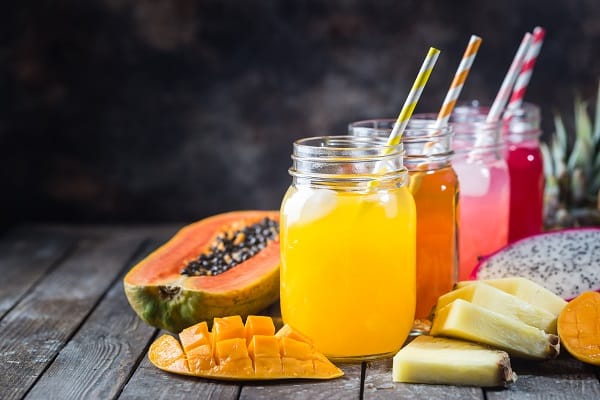Modern beverages such as sodas, energy drinks, and specialty coffees have become ubiquitous in today’s fast-paced world. From billboards to TV commercials, these drinks are advertised as the perfect companions for any occasion. Yet, as these beverages become increasingly integrated into your daily life, it’s crucial to pause and consider their health implications. This article aims to delve into the rise of modern beverages, their nutritional content, and the physical and mental health consequences of their consumption. Additionally, you will explore the social and economic implications, regulatory measures, and healthier alternatives to these popular drinks.
The Rise Of Modern Beverages

The transition from traditional, homemade beverages to commercial, mass-produced drinks has been rapid and significant. Previously, drinks like herbal teas, fresh juices, and simple coffees were the norm. However, the modern beverage industry has introduced various options that are often high in sugar, caffeine, and artificial ingredients. This shift has been fueled by convenience, aggressive marketing, and the allure of novel flavors.
Market trends indicate a booming beverage industry, with energy drinks, sodas, and specialty coffees leading the way. According to reports, the global beverage market is expected to reach unprecedented heights in the coming years. Advertising plays a crucial role in this growth, targeting a wide range of demographics but focusing particularly on younger audiences. Catchy slogans, celebrity endorsements, and appealing packaging make these beverages almost irresistible, especially to impressionable minds.
Nutritional Content

Regarding nutritional content, many modern beverages leave much to be desired. A typical can of soda can contain up to 10 teaspoons of sugar, far exceeding the daily recommended limit. High-calorie counts are also a concern, with some drinks packing as many calories as a small meal. These factors contribute to a range of health issues, from obesity to diabetes, making it essential to scrutinize what’s actually in these drinks.
Artificial sweeteners, often used as a “healthier” alternative to sugar, come with their concerns. Studies have shown that these sweeteners may have potential long-term health risks, including negative gut health and metabolism impacts. Furthermore, most modern beverages lack essential nutrients. Unlike natural juices or milk, which provide vitamins and minerals, drinks like sodas and energy drinks offer little to no nutritional value, making them empty calories in the truest sense.
Physical Health Implications

Many modern beverages’ high sugar and calorie content directly affect physical health. One of the most pressing concerns is the link between these drinks and obesity. High-calorie beverages can contribute to weight gain, especially when consumed regularly. The body stores excess calories as fat, leading to obesity and increasing the risk of numerous other health issues.
Another alarming consequence is the relationship between sugary drinks and Type 2 diabetes. Consuming high amounts of sugar can lead to insulin resistance, a key factor in the development of diabetes. Some beverages, particularly those high in caffeine and sugar, can also contribute to cardiovascular issues. Excessive consumption can lead to high blood pressure, increased heart rate, and, in severe cases, heart disease.
Mental Health Implications

The impact of modern beverages extends beyond physical health, affecting mental well-being as well. High-caffeine beverages, such as energy drinks and certain specialty coffees, have been linked to increased anxiety levels. The stimulant nature of caffeine can trigger or exacerbate anxiety symptoms, leading to a cycle where individuals consume these drinks to boost energy but end up feeling more anxious.
Sleep disruption is another mental health concern associated with the consumption of modern beverages. Drinks high in caffeine or sugar can interfere with sleep patterns, reducing the quality and duration of sleep. Poor sleep can lead to various mental health issues, including increased stress, mood swings, and decreased cognitive function. The relationship between beverage consumption and sleep is a complex one that warrants careful consideration.
Social And Economic Implications

The social implications of modern beverage consumption are often overlooked but are nonetheless significant. Social settings, especially among younger demographics, frequently encourage the consumption of sugary or alcoholic beverages. Peer pressure and social norms can make it difficult for individuals to opt for healthier choices, leading to a cycle of unhealthy consumption that can be hard to break.
From an economic standpoint, the regular consumption of modern beverages can be a significant financial burden. The costs increase quickly, especially for specialty coffees and premium juices. Moreover, the long-term health implications can result in substantial healthcare costs for individuals and society. The economic burden extends beyond the price tag on the bottle, affecting various aspects of life and well-being.
Regulatory Measures

Governments and health organizations increasingly recognize the need for regulatory measures to curb the negative impacts of modern beverages. Taxation is one such measure, with several countries implementing or considering taxes on sugary drinks. These taxes discourage consumption by increasing costs, thereby indirectly promoting healthier choices.
Labeling requirements are another regulatory measure gaining traction. Clear, easy-to-understand nutritional labels can empower consumers to make informed choices. Some jurisdictions are even considering warning labels for drinks with high sugar or caffeine content, similar to the warnings found on tobacco products. Although sometimes controversial, these regulatory steps aim to mitigate the health risks associated with modern beverage consumption.
Healthier Alternatives

Fortunately, there are healthier alternatives to modern beverages that are both satisfying and nutritious. Natural juices, herbal teas, and infused waters offer a range of flavors without the high sugar and calorie content. These options can provide essential nutrients and are often free from artificial additives, making them a smarter choice for health-conscious consumers.
Moderation and mindfulness are key when it comes to beverage consumption. Being aware of what you’re drinking and how it affects your body can go a long way in making healthier choices. Simple practices like reading labels, measuring portions, and being mindful of timing can help individuals make better decisions, benefiting their physical and mental health.
The Bottom Line
The modern beverage landscape is a complex one, filled with a variety of options that range from highly nutritious to downright detrimental. While these drinks offer convenience and flavor, it’s crucial to consider the long-term health implications of regular consumption. From physical health risks like obesity and diabetes to mental health concerns such as anxiety and sleep disruption, the stakes are high. Regulatory measures and healthier alternatives offer some respite, but the onus ultimately falls on the individual to make informed choices. As consumers, it’s your responsibility to be mindful of what we consume, not just for your well-being but for your communities’ broader social and economic health.


